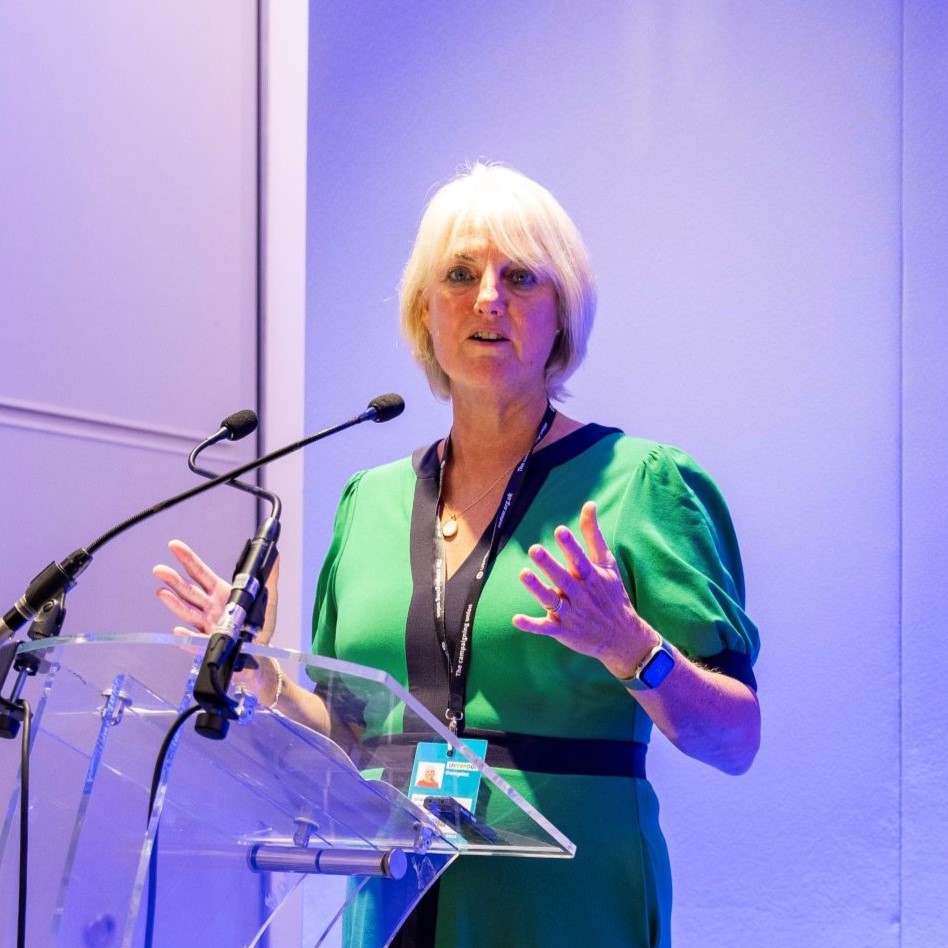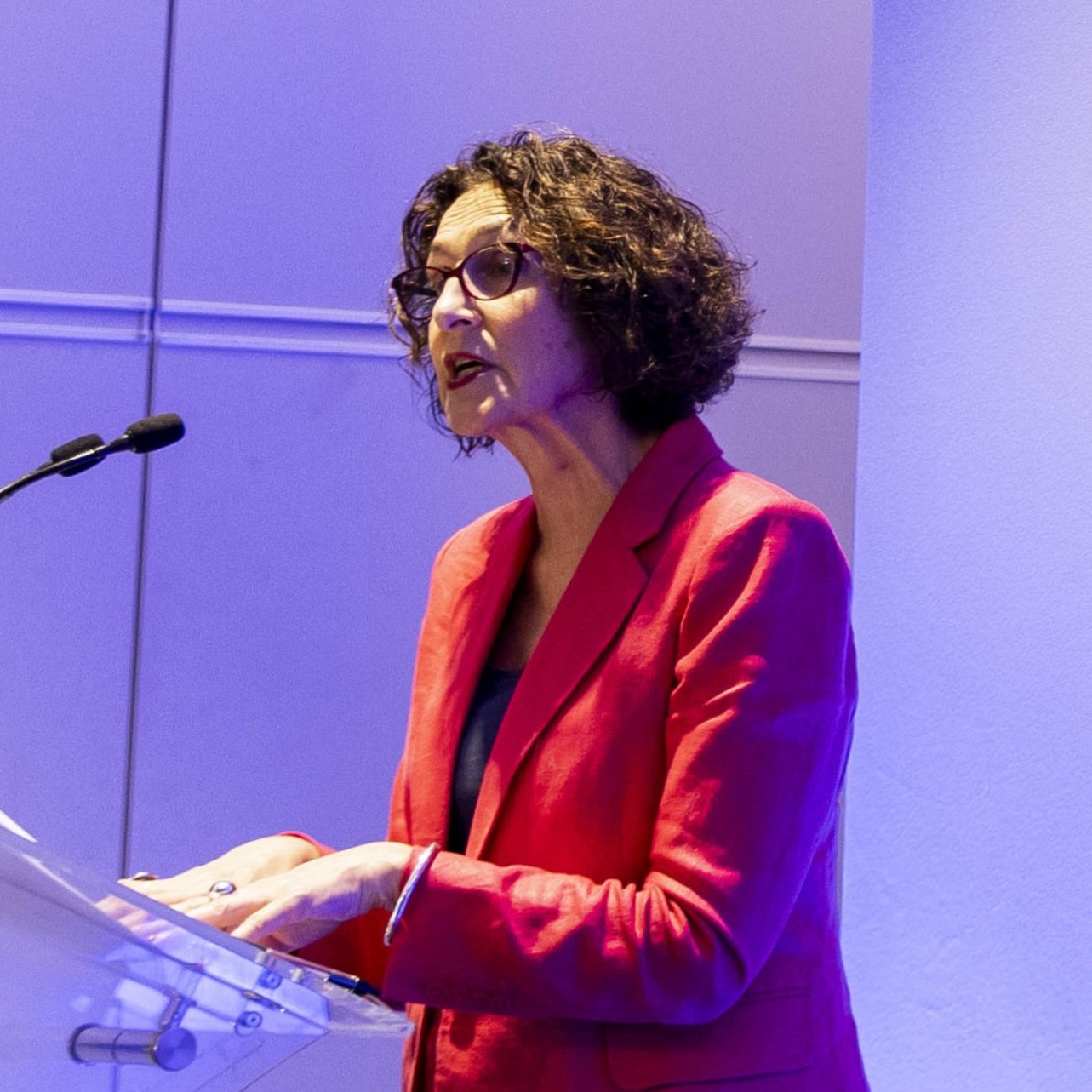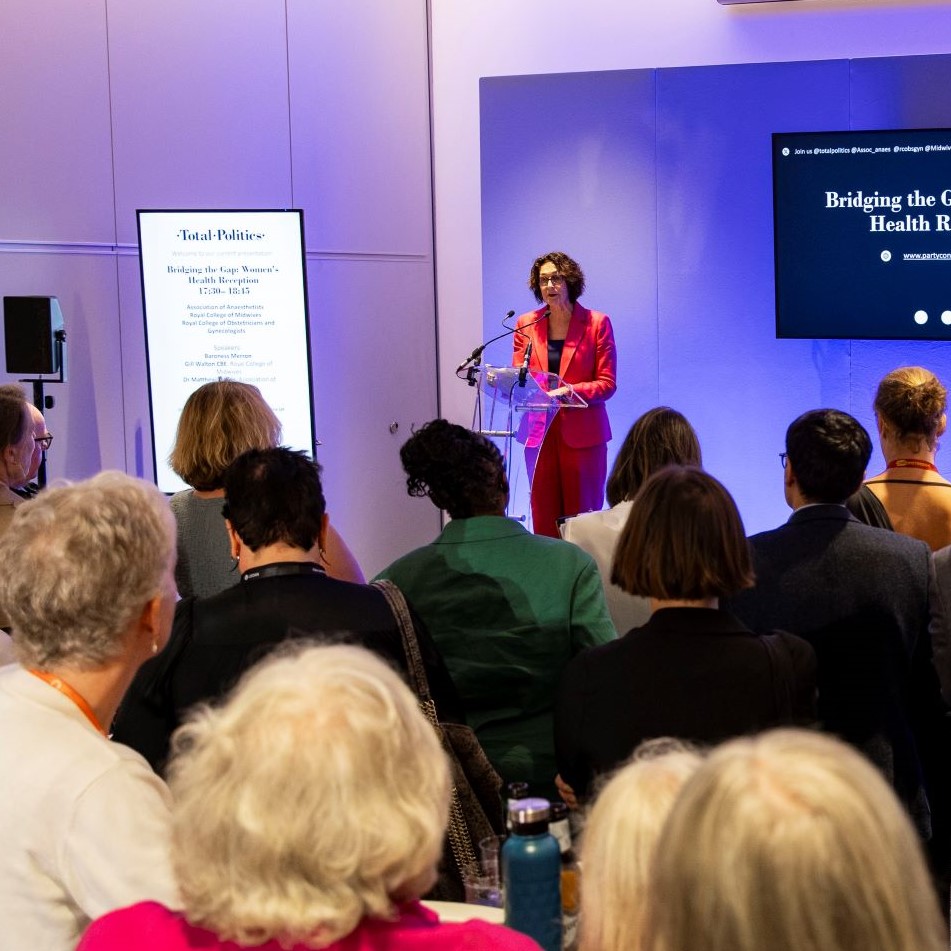Bridging the gap: tackling inequalities in women’s healthcare
Association of Anaesthetists and Royal College of Midwives
The NHS is at a critical juncture, with waiting lists the longest on record1 and patient satisfaction the lowest on record.2 Despite progress being made in recent years to close the gender health gap, women are disproportionately feeling the effect.
At the recent Labour Party conference in Liverpool, a dynamic reception jointly sponsored by the Association of Anaesthetists and the Royal College of Midwives brought together healthcare professionals, parliamentarians, and Labour Party members to address these ongoing disparities in women’s healthcare.
 Gill Walton, Chief Executive and General Secretary of the Royal College of Midwives
Gill Walton, Chief Executive and General Secretary of the Royal College of Midwives
Gill Walton, Chief Executive and General Secretary of the Royal College of Midwives, set the stage by acknowledging that women's health has been historically overlooked, stating, “For too long, women’s health has been largely ignored in planning and delivering services”. Walton pointed to the Labour government’s manifesto pledge that “never again will women’s health be neglected.”
Highlighting the recent Darzi Report, Walton noted its limited focus on women’s health, stressing that major issues affecting women remain insufficiently addressed - with women’s health issues amounting to only two-and-a-half pages on maternity and neonatal care out of a 163-page report.3 She urged the new government to seize this moment as an opportunity for reform, particularly in maternity services where “staff are stretched too thin”, “buildings aren’t fit for purpose” and facilities are often “unsafe.”
Dr. Matthew Davies, President of the Association of Anaesthetists, emphasised the role of anaesthetists in supporting childbirth. “With about 1 in 2 women encountering an anaesthetist during delivery, planning for adequate anaesthesia support is crucial,” he said. Dr. Davies highlighted disparities in access to pain relief, noting that women from lower socioeconomic groups are significantly less likely to receive epidural pain relief during labour.
 Dr. Matthew Davies, President of the Association of Anaesthetists
Dr. Matthew Davies, President of the Association of Anaesthetists
He also echoed Walton’s call for better workforce support, stressing the need for dedicated resources and staff to provide quality care, highlighting that "only 20 per cent of hospitals have a dedicated anaesthetist that’s on-call for obstetrics".4 With anaesthetists in 80 per cent of hospitals being "double hatted or triple-hatted", it is clear that they are overstretched.
Baroness Merron, Parliamentary Under-Secretary of State for Patient Safety, Women's Health, and Mental Health, reiterated the government’s commitment to prioritising women's health. She acknowledged the findings of the recent CQC report, which revealed alarming failings within maternity services.5 “No woman should fear for her safety or the quality of care during childbirth,” Merron declared.
Merron highlighted the Labour government’s plans to close the maternal mortality gap by introducing a target, and to train thousands more midwives. She urged stakeholders to participate actively in the upcoming consultations for the NHS's 10-year reform plan. “Your responsibility will be to take part and ensure all views are heard,” she said.
 Baroness Merron, Parliamentary Under-Secretary of State for Patient Safety, Women's Health, and Mental Health
Baroness Merron, Parliamentary Under-Secretary of State for Patient Safety, Women's Health, and Mental Health
Collectively, the speakers underscored the necessity of addressing the complex socioeconomic and ethnic disparities in women’s healthcare. Walton called for collaboration with the government to tackle inequalities, emphasising that “closing the maternal mortality gap is a priority.” The statistic that black women are nearly three times more likely to die in childbirth than their white counterparts6 is a sobering reminder of the work that lies ahead. "How can that be acceptable in 2024?" Merron asked. "It cannot be".
Dr. Davies and Baroness Merron both highlighted retention of experienced healthcare professionals as critical to achieving sustainable improvements, with Merron urging those who have recently left the medical profession to return and work with the new government who wants to "value what [they] are doing".
 Baroness Merron addressing the bustling crowd
Baroness Merron addressing the bustling crowd
As the reception drew to a close, the shared sentiment was clear—there is hope and opportunity for impactful change in women’s healthcare. But this change will not be easy and will require the commitment of the government and the healthcare industry in tandem. The path forward is one of collaboration, investment, and commitment from all stakeholders involved.
The speeches and the discussions among the full crowd at the reception reflected a collective determination to turn ambition into action, ensuring that this parliament is one that champions women’s health with tangible results.
- NHS key statistics: England - House of Commons Library (parliament.uk)
- Public Satisfaction With The NHS Slumps To New Record Low | The King's Fund (kingsfund.org.uk)
- Independent investigation of the NHS in England - GOV.UK (www.gov.uk)
- The delivery of obstetric anaesthetic care in UK maternity units: a survey of practice in 2021 - International Journal of Obstetric Anesthesia (obstetanesthesia.com)
- National review of maternity services in England 2022 to 2024 - Care Quality Commission (cqc.org.uk)
- Maternal mortality 2020-2022 | MBRRACE-UK | NPEU (ox.ac.uk)
